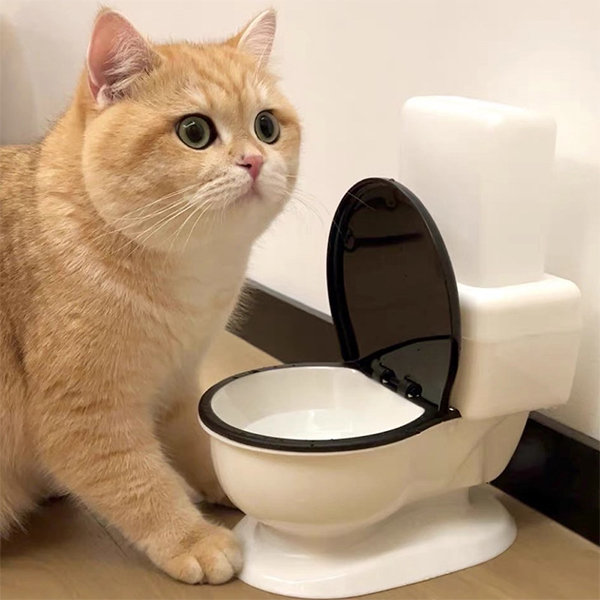Prevent Clogs and Damage: Never Flush Cat Poop Down Your Toilet - Expert Insights
Prevent Clogs and Damage: Never Flush Cat Poop Down Your Toilet - Expert Insights
Blog Article
The publisher is making a few great points relating to Can You Flush Cat Poo or Litter Down the Toilet? in general in the content down below.

Intro
As feline owners, it's necessary to be mindful of how we deal with our feline buddies' waste. While it may appear hassle-free to flush cat poop down the toilet, this technique can have damaging effects for both the environment and human health.
Alternatives to Flushing
The good news is, there are more secure and extra liable means to throw away feline poop. Think about the complying with options:
1. Scoop and Dispose in Trash
The most common method of dealing with cat poop is to scoop it right into an eco-friendly bag and toss it in the trash. Be sure to utilize a devoted litter scoop and get rid of the waste without delay.
2. Use Biodegradable Litter
Choose naturally degradable cat litter made from materials such as corn or wheat. These trashes are environmentally friendly and can be safely dealt with in the trash.
3. Bury in the Yard
If you have a yard, consider burying feline waste in a designated area far from veggie gardens and water sources. Be sure to dig deep enough to prevent contamination of groundwater.
4. Mount a Pet Waste Disposal System
Purchase a family pet waste disposal system particularly developed for cat waste. These systems use enzymes to break down the waste, reducing odor and environmental effect.
Wellness Risks
Along with ecological problems, purging cat waste can likewise present health dangers to human beings. Cat feces may consist of Toxoplasma gondii, a bloodsucker that can cause toxoplasmosis-- a potentially extreme disease, particularly for expectant females and individuals with weakened immune systems.
Environmental Impact
Flushing feline poop presents harmful microorganisms and bloodsuckers right into the water, posturing a significant risk to aquatic communities. These contaminants can negatively affect marine life and compromise water top quality.
Conclusion
Accountable family pet ownership expands past giving food and shelter-- it likewise includes correct waste monitoring. By avoiding flushing feline poop down the toilet and opting for alternative disposal approaches, we can minimize our environmental footprint and safeguard human wellness.
Why Can’t I Flush Cat Poop?
It Spreads a Parasite
Cats are frequently infected with a parasite called toxoplasma gondii. The parasite causes an infection called toxoplasmosis. It is usually harmless to cats. The parasite only uses cat poop as a host for its eggs. Otherwise, the cat’s immune system usually keeps the infection at low enough levels to maintain its own health. But it does not stop the develop of eggs. These eggs are tiny and surprisingly tough. They may survive for a year before they begin to grow. But that’s the problem.
Our wastewater system is not designed to deal with toxoplasmosis eggs. Instead, most eggs will flush from your toilet into sewers and wastewater management plants. After the sewage is treated for many other harmful things in it, it is typically released into local rivers, lakes, or oceans. Here, the toxoplasmosis eggs can find new hosts, including starfish, crabs, otters, and many other wildlife. For many, this is a significant risk to their health. Toxoplasmosis can also end up infecting water sources that are important for agriculture, which means our deer, pigs, and sheep can get infected too.
Is There Risk to Humans?
There can be a risk to human life from flushing cat poop down the toilet. If you do so, the parasites from your cat’s poop can end up in shellfish, game animals, or livestock. If this meat is then served raw or undercooked, the people who eat it can get sick.
In fact, according to the CDC, 40 million people in the United States are infected with toxoplasma gondii. They get it from exposure to infected seafood, or from some kind of cat poop contamination, like drinking from a stream that is contaminated or touching anything that has come into contact with cat poop. That includes just cleaning a cat litter box.
Most people who get infected with these parasites will not develop any symptoms. However, for pregnant women or for those with compromised immune systems, the parasite can cause severe health problems.
How to Handle Cat Poop
The best way to handle cat poop is actually to clean the box more often. The eggs that the parasite sheds will not become active until one to five days after the cat poops. That means that if you clean daily, you’re much less likely to come into direct contact with infectious eggs.
That said, always dispose of cat poop in the garbage and not down the toilet. Wash your hands before and after you clean the litter box, and bring the bag of poop right outside to your garbage bins.
https://trenchlesssolutionsusa.com/why-cant-i-flush-cat-poop/

I'm just very occupied with Don’t flush cat feces down the toilet and I hope you appreciated our article. Sharing is nice. You just don't know, you could be helping someone out. Bless you for your time. Don't forget to check our site back soon.
Click Here Report this page